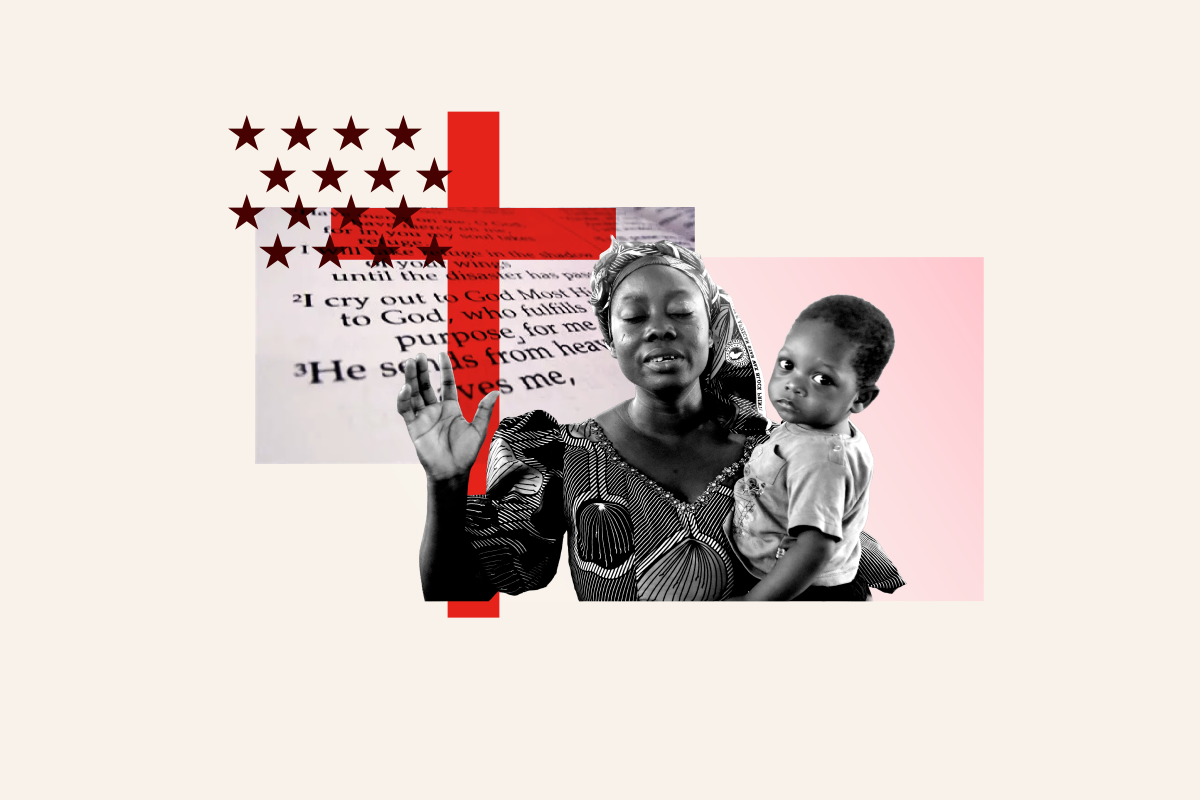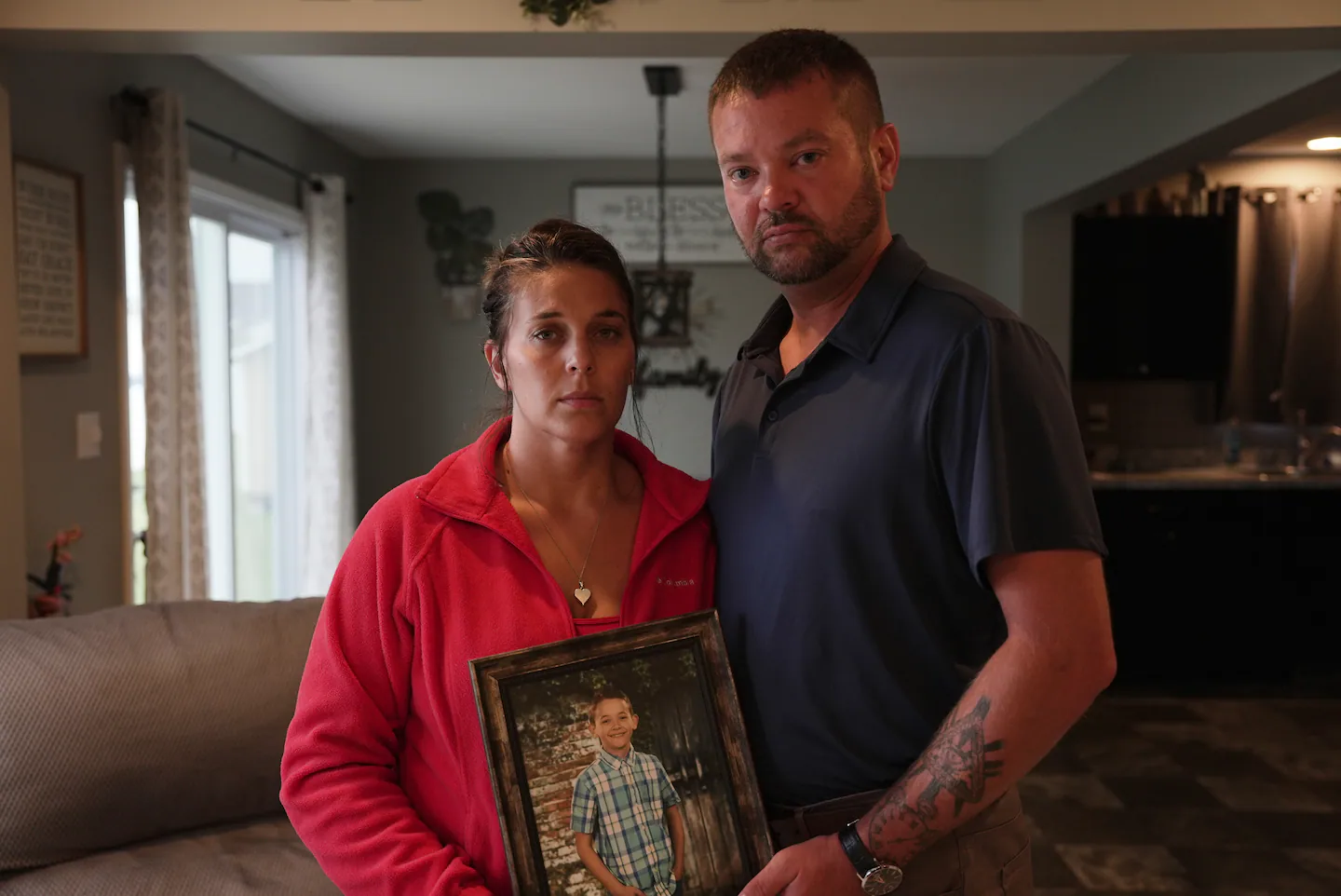Copyright Newsweek

President Donald Trump recently said if Nigeria "continues to allow the killing of Christians" the U.S. will intervene "guns-a-blazing." Nigeria has denied any mistreatment of their country's Christians. Should the U.S. put boots on the ground in Nigeria to safeguard the Christians there? Is there more to the story here? Newsweek contributors Paul du Quenoy and David Faris debate: Paul du Quenoy: Fresh from his successful interdiction of drug boats from Venezuela and Colombia and settlement of seven conflicts in the first seven months of his presidency, and following on his annihilation of ISIS in the Middle East in his first term, President Donald Trump is finally committing decisive U.S. action to Nigeria, Africa's most populous country, where Boko Haram and allied Islamist terror groups operate with near-total impunity. According to the International Society for Civil Liberties and the Rule of Law, these terrorists have killed nearly 60,000 Christians since 2009, including more than 7,000 who were killed in the first 220 days of 2025 alone. Their victims have included multiple incidents targeting children, who have been murdered or kidnapped in large numbers. Since 2024, Boko Haram has only become more powerful and expanded its operations into Chad, Cameroon and Niger, while targeting Nigerian government installations to acquire more weapons. It is time U.S. forces were brought to bear and deal decisively with this terrible humanitarian crisis. David Faris: It’s hard to believe we’re even having this conversation. By threatening to attack the most populous country in Africa as protectors of Christians like some fading colonial power, President Trump is once again displaying his 19th-century sensibilities. Nigeria is indeed a troubled country—one where U.S. intervention is likely to make things much worse. It’s a lesson we learned to the tune of $6 trillion in Iraq and Afghanistan this century, and one that candidate Trump was apparently only pretending to heed. The American people will hate this madness, but that makes no difference to a president increasingly unmoored from reality. du Quenoy: As he has done successfully and with significant popular support, President Trump has pledged to attack not the country and government of Nigeria, but the terror groups who have reduced it and the surrounding Sahel region to one of the world’s bloodiest, a place that now accounts for more than half of global deaths from terrorism. Unlike his predecessor, who disastrously withdrew U.S. military power from that region, Trump has the will to restore it and save tens of thousands of lives. Faris: From Chicago to Nigeria, President Trump is a master of offering “help” to those who did not ask for it. Boko Haram is a symptom of state weakness, not an invitation for open-ended and cloddish American military intervention. Congress must reclaim its war powers from this madman before it’s too late. du Quenoy: Nigeria’s persecuted Christians are daily pleading for help from anyone who can provide it. Their corrupt and incompetent government and feckless international institutions have been totally unable to protect them. President Trump has consistently proved that he can solve such crises, effectively, and without forever wars. Faris: “Corrupt and incompetent” is now best applied as a description of our own government. What is the plan here other than obsequiously deferring to the president’s erratic whims and blindly hoping that a foreign policy apparatus stripped of regional expertise and legitimacy will magically resolve complex sectarian conflicts with blunt force? du Quenoy: Neutralizing the planet's most active terror group—one that is killing large numbers of people and destabilizing both Nigeria and the Sahel region more every day—is neither "erratic" nor "whimsical," but a sound policy that will obliterate radical Islamists at least effectively and possibly even more effectively than Trump obliterated ISIS in his first administration. There is simply no reason to tolerate mass murder by terrorists when a tried and true pattern of limited intervention can stop it. Faris: Why are we tiptoeing around the obvious? Our elderly president who consumes nothing but far-right agitprop got mad after he watched a Fox News segment about Nigeria. He cannot point to a pretext for intervention and offered no legal rationale or plan. It is unlikely that he even knows where Nigeria is on a map. We’ve reached the point where the president issues bizarre threats out of nowhere and people who were once capable of thinking for themselves just clap and bow and cheer. This is late-stage autocratic insanity, and it will not end well, for President Trump or Nigeria. du Quenoy: President Trump is pursuing a coherent global strategy to end wars, stop terrorism and save lives while all the failed international left can do is complain while preferring to see continued massive destruction and great loss of life. In Nigeria, U.S. intervention will save thousands of lives where they are most at risk and eliminate a lethal and growing threat to national, regional, continental and global stability. As we have seen and will likely see elsewhere, intervention can be necessary and decisive while avoiding forever wars and other failed neoliberal projects. Bombs away. Paul du Quenoy is president of the Palm Beach Freedom Institute. David Faris is a professor of political science at Roosevelt University and the author of It's Time to Fight Dirty: How Democrats Can Build a Lasting Majority in American Politics and The Kids Are All Left: How Young Voters Will Unite America. His writing has appeared in Slate, The Washington Post, The New Republic and more. You can find him on Twitter @davidmfaris and Bluesky at davidfaris.bsky.social The views expressed in this article are the writers' own.



